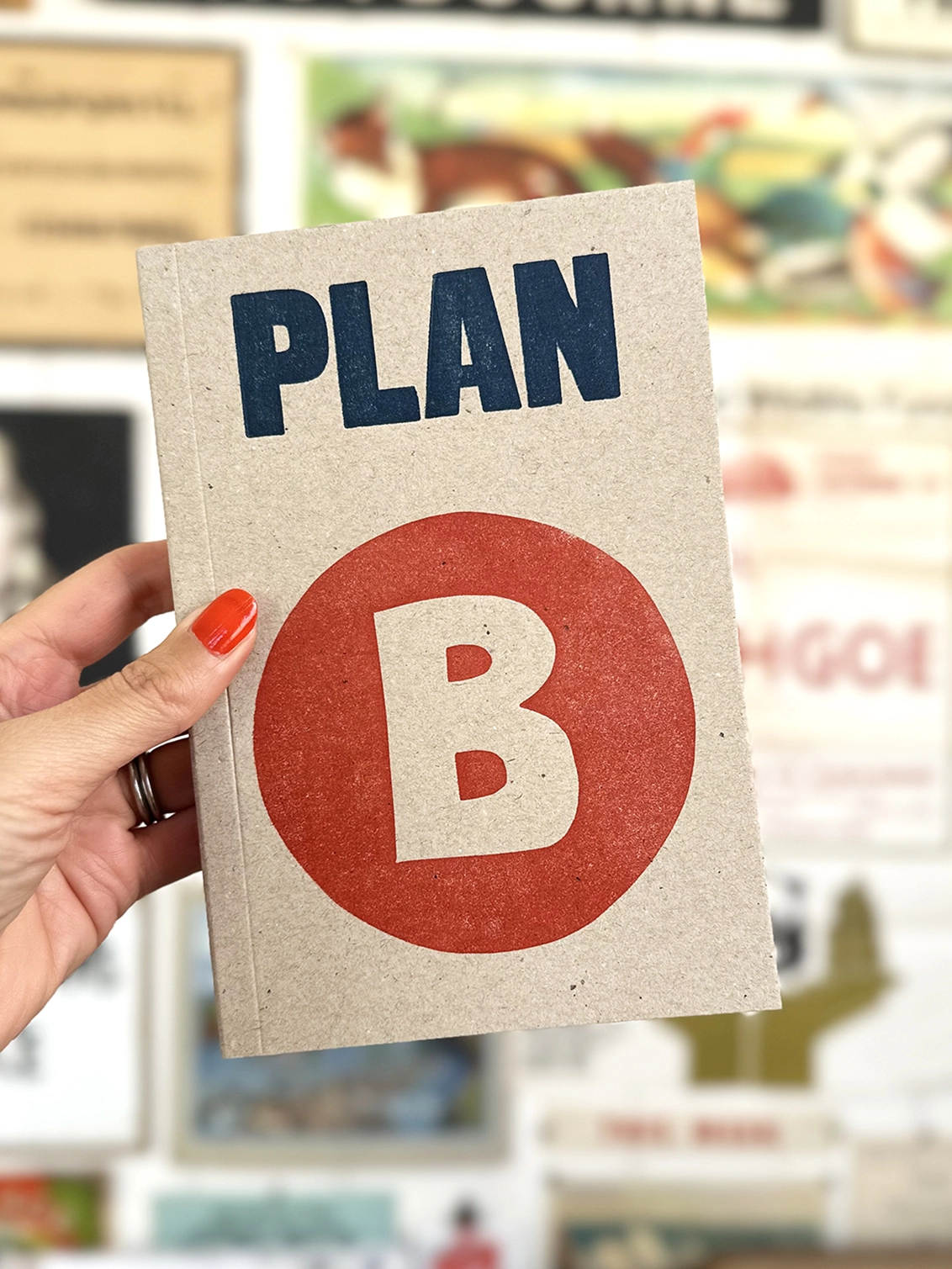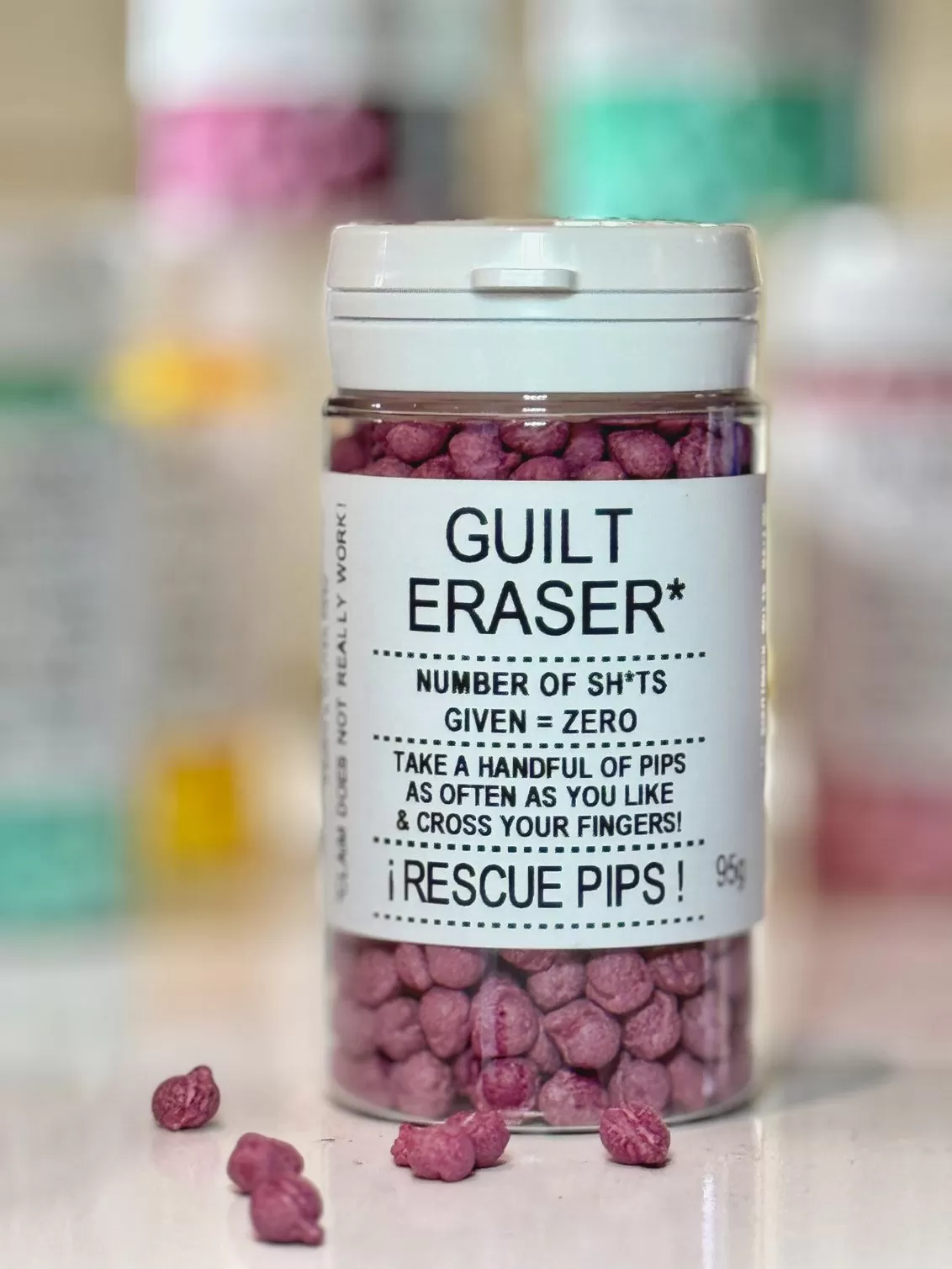
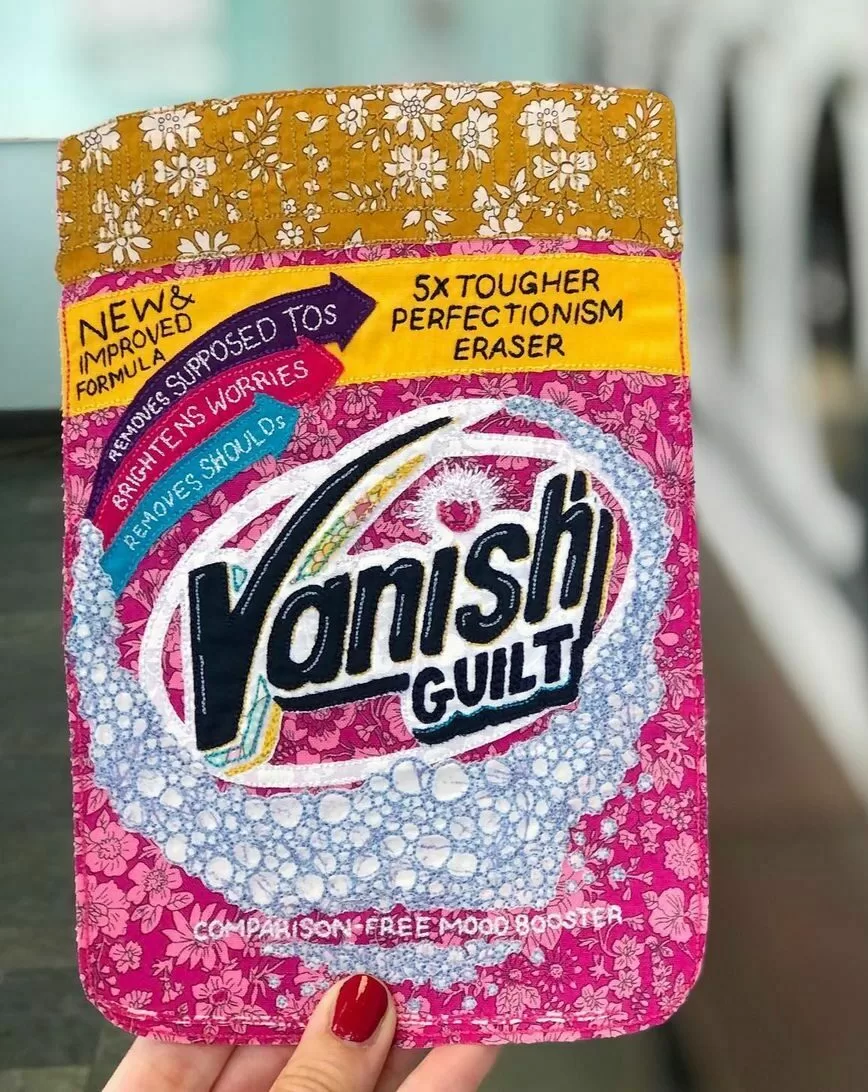
How to stop feeling guilty? Try these 10 top tips...
UPDATED 14TH SEPTEMBER 2023
The top 10 tips to help you let the guilt go, reduce anxiety and practise self-forgiveness.
How do you overcome guilt? It’s time to give yourself a break
The author Edna O’Brien once described a character as having a ‘long iceberg of guilt’ inside her. Isn’t that exactly what it feels like? Whether it’s something truly unforgivable or just having not called a friend when we said we would, this paralysing feeling can have a devastating effect on us. And it lingers way longer than it should.
What can we do to stop feeling guilty?
How do we unburden ourselves? Are there really ways to learn to live it? Our resident expert — business psychologist and coach, Kate Downey-Evans — says in most cases, yes. She’s here to help us understand more about the nature of how guilt works and our relationship to it, and most importantly, to share some practical pointers to get rid of it.
What is guilt and how does guilt work?
Let’s start by defining it. Guilt is an emotional state we get into caused by conflict around not doing something we think we should have or doing something we perceive as being ‘wrong’, either on purpose or accidentally. It affects us physically, too. We go red, our stomachs lurch, we can’t sleep, our hearts race… or it might just feel like a blankness, something we learn to live with — even though it can make us very ill. Kate really wants to emphasise that, “Some feelings of guilt are very deep rooted. They can be caused by trauma and if you are experiencing that type of guilt, this is when you should go to a psychotherapist and properly work on to help get out of that position.” However, the more regular ‘day-to-day’ guilt is something we can work on ourselves — and it’s important that we do.
The two types of guilt: the healthy kind and the horrid kind
Dr Guy Winch PhD said, “We experience five hours a week of guilty feelings.” and also that, “Studies have found that concentration, productivity, creativity and efficiency are all significantly lower when you’re feeling actively guilty.”¹
Yet guilt isn’t solely bad. Sometimes it can be productive. It’s there as a kind of warning system to help teach us to avoid certain behaviour or situations in the future. Coach Kate explains, “There are actually two types of guilt: healthy guilt and unhealthy guilt. Healthy guilt is when we actually have done something wrong, and our guilt is proportionate to that. Often we can remedy it by apologising or making amends. If we’ve said something unkind, we can apologise. If we’re spending money we don’t have, we can stop doing it. But then there’s unhealthy guilt; it’s often totally disproportionate to the event, when you feel you can’t put something right. Sometimes it’s completely disconnected from the truth yet we catastrophise it. And this can cause real significant stress over time.”

How to stop feeling bad about something you did
Generally, the more experienced we are in life, the more we can start to make a distinction between the two different types. We can look back and reflect on those times when we worried ourselves sick but actually the thing we most feared turned out not to be as bad as we thought. Wilfred Emmanuel-Jones MBE tells Holly how to make fear your friend on his Conversations of Inspiration episode, and explains how we can use these experiences to our advantage to help rationalise new situations that arise. Here are 10 more tips you can use…
10 tips for setting guilt free: ways to train the brain
1. Press pause
Ask yourself honestly, should you really be feeling guilty? Is it your interpretation of the situation or 100% fact? Is it your own values that are being compromised or inherited ones (ie. the values of others)? If it’s the latter, let it go.
2. See if you can address the situation and put it right
If it’s something you feel you’ve done wrong, try and remedy it ASAP. Don’t let it fester. If it’s something from a long time ago, deal with that too. Holly calls these ‘guilt cobwebs’. Write a letter. Make that phone call. Apologise and get rid of it. And if you need help on having difficult conversations, read our article on it.
3. Stop recurring patterns of guilt
Are you always late for work? Find a new route or leave earlier. It sounds obvious but small changes make a big difference.
4. Focus on three things that matter
Define the biggest things you feel guilty about, work on those and let the rest go. Otherwise it’s overwhelming and it’s likely the smaller ones don’t matter.
5. Think about quality over quantity
Keep missing the children’s bedtimes? Set two nights a week where you will be there, happy and fully present, and stick to it (rather than committing to every night and failing). You’ll feel less guilty by only giving what you can.
More ways to get rid of guilt
6. Remember we are not responsible for making the world happy
We have a duty to look after our own needs first to enable us to be better for others. Women, in particular, struggle with this emotion and we owe it to ourselves to face into it and try to resolve it.
7. Reframe it or redefine it
Think of the ‘up’ side. Being successful isn’t annoying, it’s important. Other people need role models and positive stories. Also use your success to give back. Think how you can help others now by mentoring, donating, hiring and so on.
8. Look after yourself physically
Otherwise it affects you mentally. Breathe, calm your mind and avoid the vicious circle. The more guilty we feel, the worse we sleep, the more emotional we get, the worse the guilt becomes and so on.
9. Understand that guilt is often a waste of emotion
Our worst fears often don’t materialise. We feel guilty about things that never happen. What positive emotion could we replace it with instead?
10. Give your guilt a name
Sketchy Muma says, “I am calling guilt a character name like Graham or something to separate it from me”. What a brilliant way to help manage it.
Overall, the less guilt we feel, the more energy we’ll save for our families, our friends and our work. Plus we’ll be setting a better example for others by refusing to carry it around like heavy shopping. So whip out that Vanish, be kind to yourself and let’s get it gone.
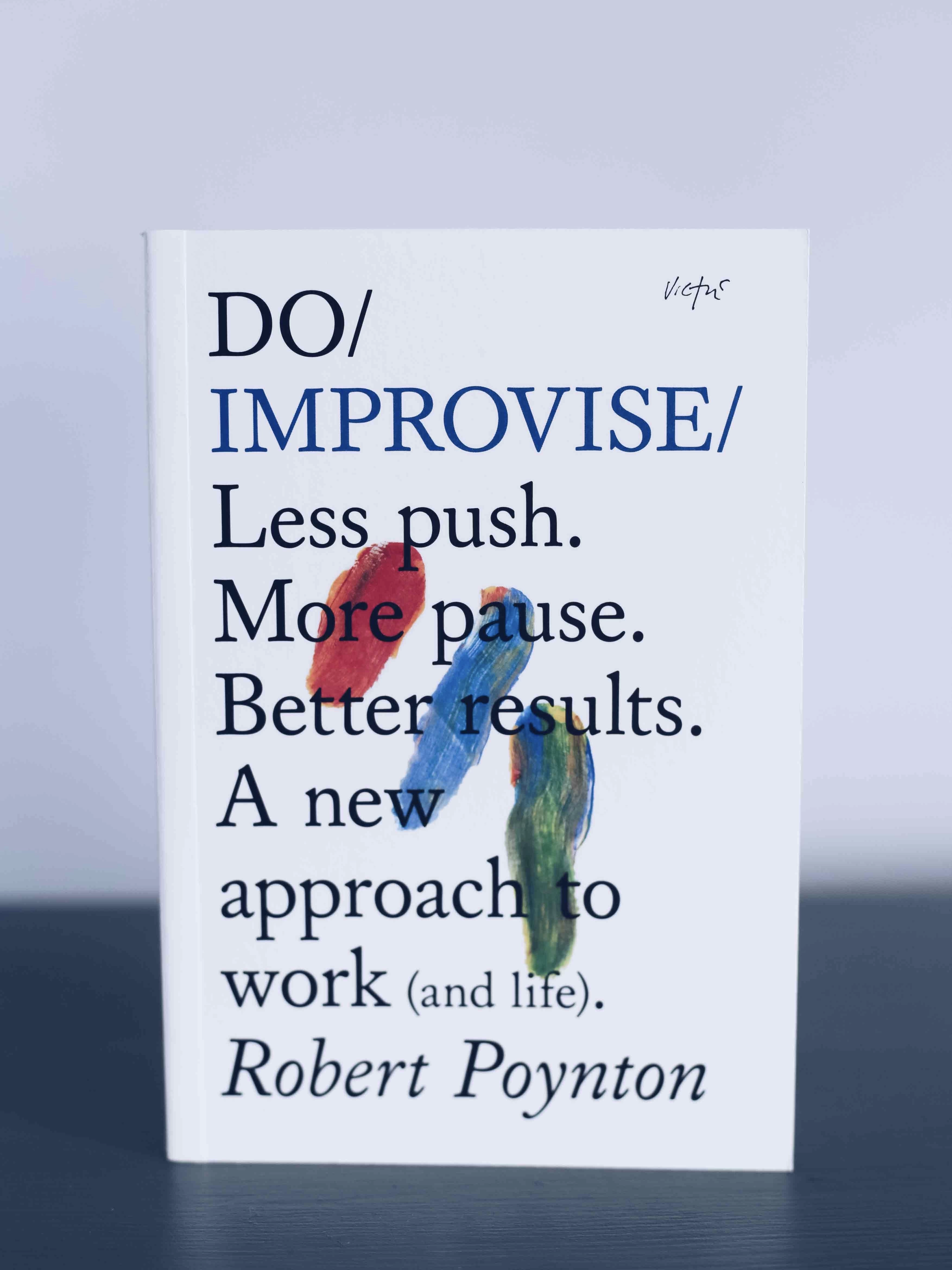
Do Improvise: Less Push. More Pause. Better Results.
Sources: 1. 10 things you didn’t know about guilt.
More inspiration for you
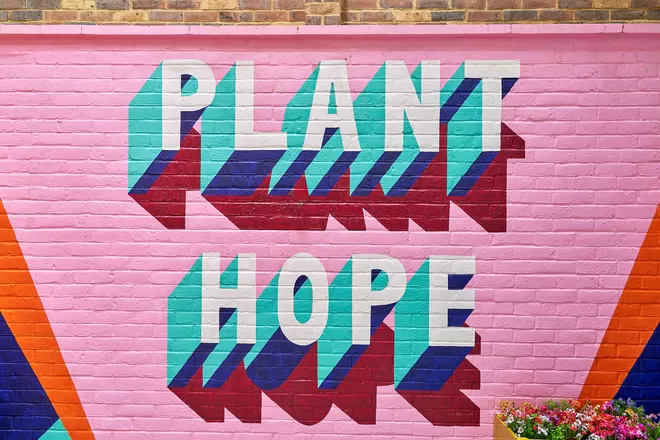
Planting hope: the importance of inspiring optimism and having faith

How to live fully: it’s time to empower women to flourish and fly

Stitching a path to Bridgerton

How to reset your life: Tips to refresh, rejuvenate and reignite happiness
Be the first to know
Sign up to our emails for brand new small business magic and inspiration. And if you create an account, you’ll also get exclusive product drops, discounts and more from Club Holly & Co, too.

